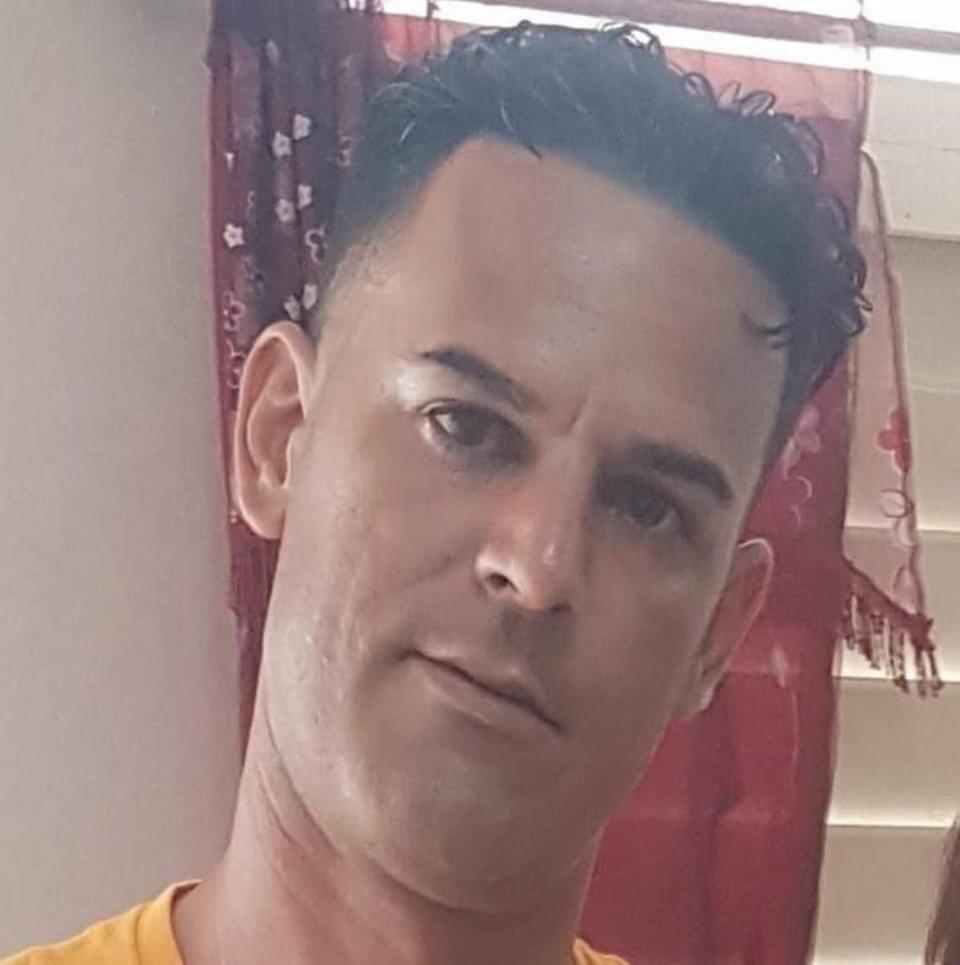Cuban protester who tore apart image of Fidel Castro sentenced to 10 years in jail

Cuban judges have sentenced Roberto Pérez Fonseca, who protested against the government on July 11 and helped tear apart an image of the late Fidel Castro, to 10 years in prison.
Three judges of the municipal court of San José de las Lajas, a town near Havana, sentenced Pérez Fonseca this month to 10 years in jail on charges of contempt, public disorder, incitement to commit a crime, and assault. The prosecution asked for a 12-year sentence.
The ruling would be the longest sentence so far in connection to the islandwide anti-government protests in July. The court documents do not mention Pérez Fonseca’s participation in the destruction of what videos of the protests suggest was an image of Castro but his relatives believe that was the true motive behind such a harsh sentence.
The sentencing document, dated October 6, was obtained by his relatives on Tuesday. The trial took place on September 28 behind closed doors and with extensive police deployment, according to a video testimony of his mother, Liset Fonseca Rosales, the only family member allowed in. The video was sent to Cubalex, an organization that offers legal aid to detainees, and shared with the Herald.
Pérez Fonseca, 38 and a father of two, has been in prison since his arrest on July 16. He was only able to see his lawyer 14 days later, on July 30. He is currently in a high-security prison in Quivicán, another town near the capital. His mother said that other prisoners told her that jail officers had beaten her son and that he was on a hunger strike for six days.
Both the sentencing document and the indictment, also reviewed by the Herald, show that the accusations against Pérez Fonseca are based exclusively on the statements of one local police officer, Jorge Luis García Montero.
“Due process was not respected. It is his word against that of a policeman, and according to Cuban law, this does not exempt the authorities from investigating to obtain evidence” of the accusations, said Cuban lawyer Laritza Diversent, director of Cubalex. The organization has documented 1,124 arrests in connection with the protests.
“It is an exemplary sentence to inhibit the population, and they are rushing to do it now,” before a new anti-government march called for Nov. 15, she added.
The allegations and the sentencing
According to the documents, the most serious crime allegedly committed by Pérez Fonseca is to have thrown a stone at García Montero. The rock struck the agent’s wrist and did not cause injury or require medical attention, both documents say. For this alleged act, and for having allegedly thrown a second stone at a patrol car, which also did not cause damage, the judges determined that Pérez Fonseca should remain in prison for seven years.
They also added more years to the sentence because, according to the policeman’s account, Pérez Fonseca allegedly incited other protesters to throw “rocks and bottles” at a state-owned dollar store and yelled insults.
The judges also considered as an aggravating factor that Pérez Fonseca did not abide by movement restrictions related to the COVID-19 pandemic to join the demonstrations.
The documents do not cite any other incriminating evidence.
The judges said that a previous misdemeanor for which Pérez Fonseca was convicted should not be taken into account as a criminal record. Still, at the same time, they concluded that “it does show us his special proclivity for committing criminal acts and all this allows us to conclude that he has a bad moral and social behavior.”
The ruling document shows the defense denied the accusations and requested that Pérez Fonseca be acquitted. According to his mother’s testimony, Pérez Fonseca confronted agent García Montero when he was trying to arrest another person and yelled “abuser” at him. The agent also participated days later in the arrest of Pérez Fonseca. The police forced his mother to delete a video of the arrest.
“This is all a montage, a poorly created story,” said his brother Alberto Ortega Fonseca, who lives in Vancouver, Canada. “Everything they say is ridiculous and shows the falsehood and the circus set up by this dictatorship against my brother and the other young people who are imprisoned.”
Diversent, of Cubalex, questioned why, if Pérez Fonseca was accused of inciting a crowd, the prosecution did not present any other witnesses to the events.
On Monday, Human Rights Watch, which also verified Pérez Fonseca’s case, released a report condemning the Cuban government’s systematic repression of the demonstrators arrested and highlighting the role of judges and prosecutors in trials that do not comply with due process.
“We know that regarding some (of the detainees) they are seeking absurd and abusive sanctions, such as up to 12 years in prison, a total disproportion in relation to the right to protest peacefully,” said José Miguel Vivanco, HRW’s director for the Americas in a press conference on Monday in Miami. “We also hold judges and prosecutors responsible for this repression. We know that in Cuba, they are subordinate to the control of the executive and have acted to try to legitimize this repressive response, the abuses suffered by those who have dared to protest.”

 Yahoo Movies
Yahoo Movies 